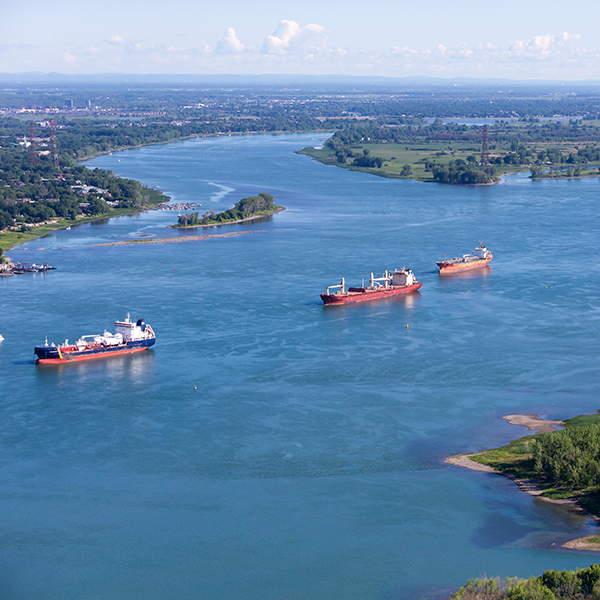
Measuring the carbon footprint of vessels at the Port of Montreal
The Montreal Port Authority (MPA) and Global Spatial Technology Solutions (GSTS), a company that specializes in applying artificial intelligence (AI) to shipping, announced the launch of a new project to measure and reduce the carbon footprint of vessels using the Port of Montreal that makes the most of artificial intelligence.
Based on the OCIANATM modular platform, the project provides real-time data on the route, speed and position of vessels heading to Montreal. These data are then analyzed to obtain an accurate estimate of a vessel’s arrival time and adjust its route to coordinate with the availability of berths in the Port of Montreal. This makes it possible for ships to optimize their sailing speed, which in turn reduces fuel consumption and GHG emissions, shortens anchoring time before docking, and benefits operational planning and optimization.
Ultimately, the digital corridor concept will enable accurate, real-time communication between ports, terminal operators and ocean carriers to improve operational efficiency and decrease GHG emissions.
“The Port of Montreal came to the table with a commitment to cut emissions and optimize efficiency for all vessels calling at Montreal. We have worked with GSTS to ensure that the capabilities they are developing meet the needs and objectives of ports and shipping lines,” said MPA President and Chief Executive Officer Martin Imbleau. “We look forward to continuing our relationship with GSTS to showcase their innovations in the shipping sector, as we continue to drive innovative and environmental initiatives at the Port.”
